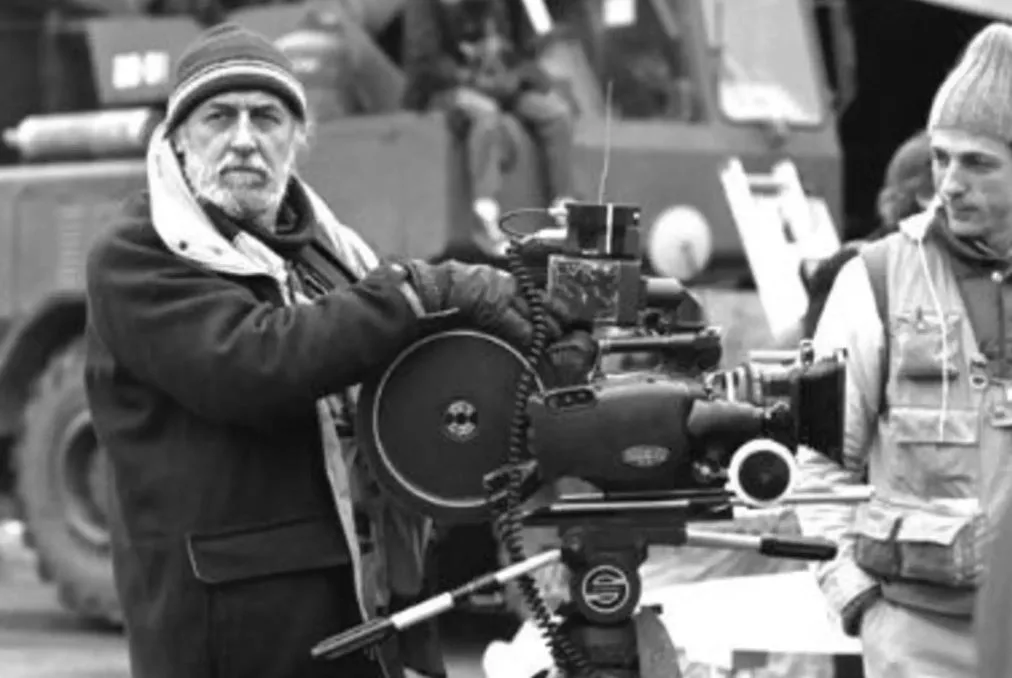Montreal – In 1974, Michel Brault’s feature docudrama Les ordres (Orders) was released. Today, highlighting the 50th anniversary of this major work and Cannes award winner, the National Film Board of Canada (NFB) is also pleased to announce that the version of the film restored by Éléphant: mémoire du cinéma québécois will be available for distribution at festivals, film clubs and other venues.
In fact, the NFB now shares distribution rights with Éléphant on a number of works by Brault—the restored version of not just Les ordres but also Entre la mer et l’eau douce, Quand je serai parti… vous vivrez encore and the documentary series Le son des Français d’Amérique, co-directed with André Gladu.
The NFB thanks the Brault family for entrusting it with the distribution of these works. In addition, the NFB will continue to conserve and highlight Michel Brault’s seminal, NFB-produced films as well, many of which are available on nfb.ca.
Quotes
“Michel Brault is one of Quebec’s greatest creators: a master of cinéma direct, a consummate cameraperson, an outstanding DOP, a director who made his mark in both drama and documentary at the NFB and in the private sector. This new distribution agreement will help the NFB bring his films to more audiences than ever, and especially to new generations. The 50th anniversary of Les ordres reminds us of the importance of such works for our collective memory.” – Suzanne Guèvremont, Government Film Commissioner and NFB Chairperson
“The Brault family would like to express its gratitude to the NFB and its partners, Éléphant and the Cinémathèque québécoise, for their part in the promotion, conservation and protection of the exceptional legacy left to us by our father. Thank you on behalf of all of Michel’s children and grandchildren.”
Quick Facts
Les ordres (Orders)
Press kit: mediaspace.nfb.ca/epk/orders
Drawing on the testimonies of some 50 civilians who were detained after the War Measures Act was invoked in Quebec in October 1970, Les ordres (Orders) blurs the line between documentary and drama to tell the story of five fictional characters (three men and two women) from their arrest through to their release. The film won the award for Best Director at the 1975 Cannes Film Festival.
Special screening for the film’s 50th anniversary
Taking place Wednesday, September 25, at 6:30 p.m. at Cinéma RGFM Beloeil in Salle 1 Michel-Brault, with the Brault family and special guests in attendance.
A film about Michel Brault
Drawing on the NFB’s archives and supported by its team, the film Michel Brault – L’instinct de vue, written and directed by Frédérick Pelletier and co-produced by ACPAV and the NFB, is part biopic, part personal essay. It will help remind us all of Brault’s essential place in world cinema, at a time when his work and his creative approach still exert a decisive influence on filmmakers here and abroad.
About Michel Brault (1928–2013)
His name appears in the credits of more than 200 productions. By turns cameraman, cinematographer, director and producer, Michel Brault has been involved in four of the 10 best Canadian films of all time, either as the director or the DOP.
He joined the NFB in 1956 and went on to shoot some 40 short or medium-length films. In addition to Claude Jutra, his main partners were Jacques Giraldeau, Fernand Dansereau, Louis-Georges Carrier, Claude Fournier and Gilles Groulx. He teamed up with the latter in 1958 to make Les Raquetteurs, a film that was to decisively impact the NFB’s French Program, which from then on championed the cinéma direct movement that Brault and his colleagues were credited with founding.
After a stint in France working with Jean Rouch and Mario Ruspoli, Brault co-directed Pour la suite du monde and L’Acadie, l’Acadie?!? (English title: Acadia Acadia?!?, 1971) with Pierre Perrault.
Brault’s work as cameraman and DOP was impressive, to say the least, and included Mon oncle Antoine (1971) and Kamouraska (1973), directed by Claude Jutra; Mourir à tue-tête (English title: A Scream from Silence, 1979), directed by Anne-Claire Poirier; Le Temps d’une chasse (1972) and Les Bons débarras (1979), directed by Francis Mankiewicz; Louisiane (1984), directed by Philippe de Broca; Threshold (1981), No Mercy (1986) and Dead Man Out (1989), directed by Dick Pearce; and The Great Land of Small (1986), directed by Vojtěch Jasný.
Brault directed his first feature-length drama in 1967, Entre la mer et l’eau douce. This was followed by Les ordres (English title: Orders) in 1974, a masterpiece that won him the Best Director award at Cannes and four Canadian Film Awards, today known as the Canadian Screen Awards.
Between 1974 and 1980, he teamed up with director André Gladu to make a 27-episode documentary series on the traditional music of North America’s French-speaking communities.
Brault returned to fiction with Les Noces de papier (1989), Montréal vu par… (as co-director, 1991), Shabbat Shalom! (1992), Mon amie Max (1994) and Quand je serai parti… vous vivrez encore (The Long Winter, 1999).
In 1996, he returned to the documentary format with Ozias Leduc, Painter of the Soul’s Seasons, an hour-long film on the celebrated artist, followed in 2002 by La Manic.
Brault was honoured time and again in recognition of his contribution to cinema. The many awards he received over the years include the Prix Victor-Morin (Société Saint-Jean-Baptiste de Montréal, 1975), the Molson Prize (Canada Council for the Arts, 1980), the Quebec-Alberta Award (1986), the Prix Albert-Tessier (Les Prix du Québec, 1986), the Governor General’s Award in 1996, and the Order of Quebec (2003).








